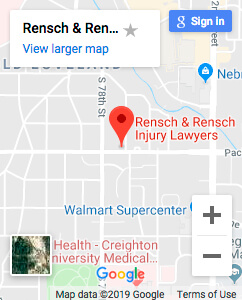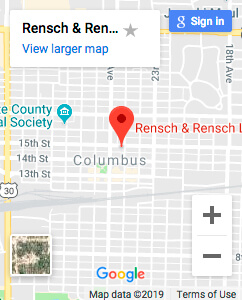Technology May Assist Older Drivers, But Drivers Need to Be Aware of their Limits
OMAHA, Nebraska. Safety features on newer model cars may be able to assist older drivers and prevent accidents, but families still need to be vigilant about when an elderly family member should give up their keys. According to the National Institute on Aging, older drivers face unique challenges and obstacles on the road. Among some of the concerns are stiff joints and muscles which can impact reaction time and make it harder for elderly drivers to turn the wheel or check their blind spots. One writer for the New York Times wrote about how blind spot detection systems and systems that warn drivers when they drift out of their lane could help elderly drivers see behind them when they back out of a parking space or need to reverse their vehicle. Yet, these systems were not designed to replace a human driver, and there has already been some concern about drivers’ overreliance on these safety features which are not meant to serve autonomously.
Older drivers also face additional challenges that computer safety systems will have difficulty correcting. Older Americans are more likely to suffer from conditions such as glaucoma or cataracts. Some medicines can also impact an older adult’s vision. This is why older adults who wish to continue driving should get their eyes checked regularly and visit the doctor if they notice any changes in their vision.
Older drivers may also experience changes in their hearing. Hearing is important to driving because it allows drivers to detect the sirens of an emergency vehicle or discern when they may be arriving at a busy intersection. Hearing is important because another driver honking his or her horn can also warn about oncoming dangers.
One of the bigger issues is dementia, Alzheimer’s, and the memory changes that can arise as Americans age. Individuals with these conditions may not be aware of their changing mental states or memory. These individuals may get lost more easily and may eventually even have trouble following the rules of the road. When a driver cannot properly follow these rules, he or she could put other people at risk. Family should closely monitor their loved ones and sometimes family needs to consult with the doctor to facilitate a transition.
Finally, older Americans should be aware of how their medications can potentially impact their driving ability. If you are receiving new medication, talk to your doctor or pharmacist about how the medication can impact your driving. Sometimes medicines can interact with one another to cause problems. Make sure your doctor knows which medicines you are taking.
Older Americans can put safety first by avoiding driving at night, during bad weather, and avoiding driving on highways. If you are concerned about your loved one’s safety behind the wheel, consider speaking to your loved one’s doctor about the risks of driving. Safety is everyone’s responsibility and accidents can be costly. Rensch & Rensch are personal injury lawyers in Omaha, Nebraska who work closely with individuals who have been hurt due to another driver’s negligence or neglect. If you have questions about an accident you have been involved in, visit us at https://www.renschandrensch.com/ to learn more about your rights and options.



